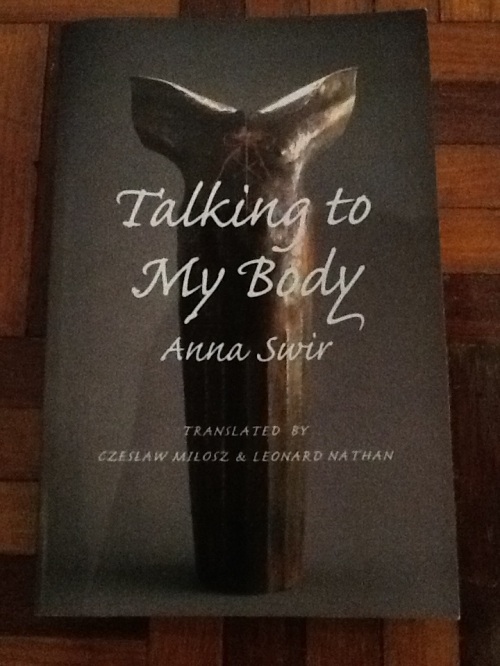Czeslaw Milosz, the great Polish poet, writes of Anna Swir, in the introduction to this collection, that she is “a poet of personal life, of love and love’s pains.” This, to me, seems a pithy yet perfect summation of Swir’s form and content. Her writing is such, that once you dip into her poetical waters, it is impossible not to want to embrace fully the limpidity of her poetry. Some may quibble that the plainness and seeming unsophistication of the style may militate against placing a high value on the currency of Swir’s poems. This reader would beg to differ. What may at first appear to be a simplicity, conceals profound truths about some of the fundamental themes in life that affect us all.
The diversity of the subject matter helps to make this collection resonate; whether that be poems about her parents, poems exploring the role of femininity, poems that deal frankly with matters of flesh, sex, ageing, mortality, motherhood, childhood and poems that investigate that greatest of emotions: love. This is poetry rooted in an earthiness, delineating the rich textures of daily-life. Abstraction is considered but these are poems that have a concrete foundation and, in their connectedness, celebrate the indomitability of the human spirit.
It has often been said that poetry is a “broad church”, which naturally means there are many definitions of what poetry is. I have always been fond of the brilliant British poet, Carol Ann Duffy and her belief that “poetry, above all, deals with emotion.” The emotional honesty in “Talking to My Body” rings apparent. It is as if Swir has taken a scalpel to her body and exposed the nest of feelings and tangled thoughts beneath. One gets the impression that these poems are written with an intent to impose some order,beauty and meaning on events. The intensity is manifest. Reflecting on the birth of her child in “Maternity”, Swir writes:
“And suddenly I am flooded
by a high, luminous wave
of humility
Powerless, I drown”
The translators have done a magical job in capturing the intensity and depth of feeling that Swir strove for her in her poetry (it seems fitting that Milosz, one of the greatest poets of the 20th century, should have a hand in promoting and praising his compatriot’s poetry). There are phrases that leap off the page, which the keen reader will want to cherish and savour: “How good to own/ a portable sun”; “I want to be clean as Nothingness”; I made love with my dear/ as if I made love dying/ as if I made love praying.” One can discern that Swir is triangulating three branches, which might best be described as: thinking, feeling, knowing. For there is no doubt that these are poems for the mind as much as they are for the body and soul.
Perhaps of equal significance to this compelling collection is the discussion at the end between Czeslaw Milosz and his collaborator in translation, Leonard Nathan; the discussion is as much a philosophical investigation of Swir’s form and style as it is interpretive and makes for essential reading. Of course, the poet should have the final word and Swir’s assertion on what she considers the poet to be will, one hopes, strike a chord and may be a springboard for those yet to discover the limpid,earthy and sapient quality of a supreme stylist: “the poet should be as sensitive as an aching tooth.”

